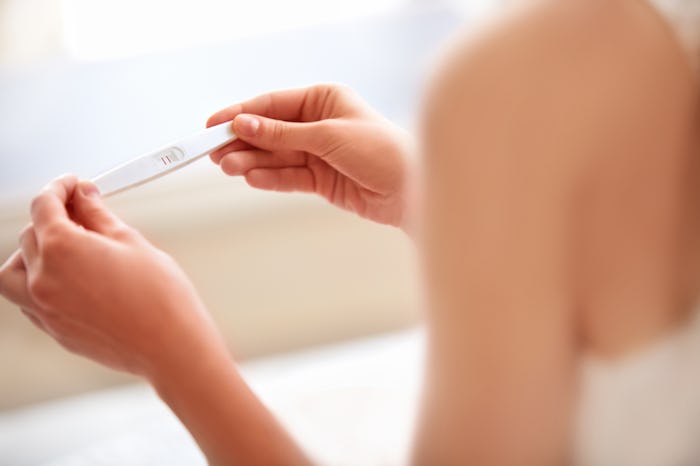Life

How Do You Get Pregnant If You Have An Ovarian Cyst? An Expert Explains
When you're trying to get pregnant, you want to be in perfect health. Some women stop drinking alcohol before they start trying to conceive — braver souls even give up coffee. But while you can control what you put into your body, other aspects of your physical condition are frustratingly out of your reach. "Cyst" can be a scary word when you're trying to conceive. After all, the only thing you want growing inside of you is a baby. But can you get pregnant if you have an ovarian cyst? Romper spoke with Board-Certified OB-GYN Dr. Kurt Martinuzzi of Emory Healthcare in Atlanta, Georgia for the lowdown on ovarian cysts and how they affect pregnancy.
First you should know that many cysts are normal and healthy. Martinuzzi explains that "cysts are fluid collections enclosed in a sac. They can occur anywhere in the body — the ovaries are one organ in the body where the great majority of cysts are. Healthy women have ovarian cysts from their early teen years up through menopause." Therefore, you probably already have an ovarian cyst, even if you've never been told that you do and you don't feel any symptoms.
These healthy cysts are actually a normal part of your monthly ovulation process, too. Martinuzzi describes how a cyst results from ovulation:
"Each month the brain stimulates the ovary to make [an] egg by releasing a hormone that stimulates a follicle to grow. Follicle stimulating hormone (FSH) causes a fluid collection around an egg to enlarge. Once the egg is mature, a second hormone is released by the brain to get the ovary to release the egg. After the egg comes out — ovulation — the follicular cyst converts to a cyst that has a yellow pigment called lutein. So in each monthly cycle, there is a cyst normally present in the ovary. For the first two weeks, the growing follicular cyst contains the maturing egg, and for the second two weeks, the corpus luteum makes a hormone to help promote a pregnancy."
However, Martinuzzi points out that in rare (and usually non-cancerous) cases, "a fluid collection grows in the ovary and there is no egg inside. If a cyst grows larger than 5 centimeters, your doctor will want to see you back in a month or two to see if it will continue to grow. If it gets larger, then you might need surgery to remove the cyst." Even these types of cysts, if treated, won't necessarily have a negative effect on your fertility, according to Mayo Clinic. According to the article, the two types of cysts most harmful to fertility are ovarian cysts resulting from polycystic ovary syndrome, and endometriomas, caused by endometriosis. If you have one of these two conditions, talk to your doctor about treatment and your fertility. And don't give up hope — women with endometriosis can still get pregnant, too.